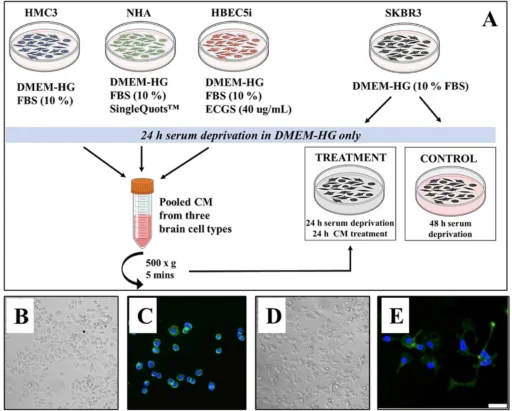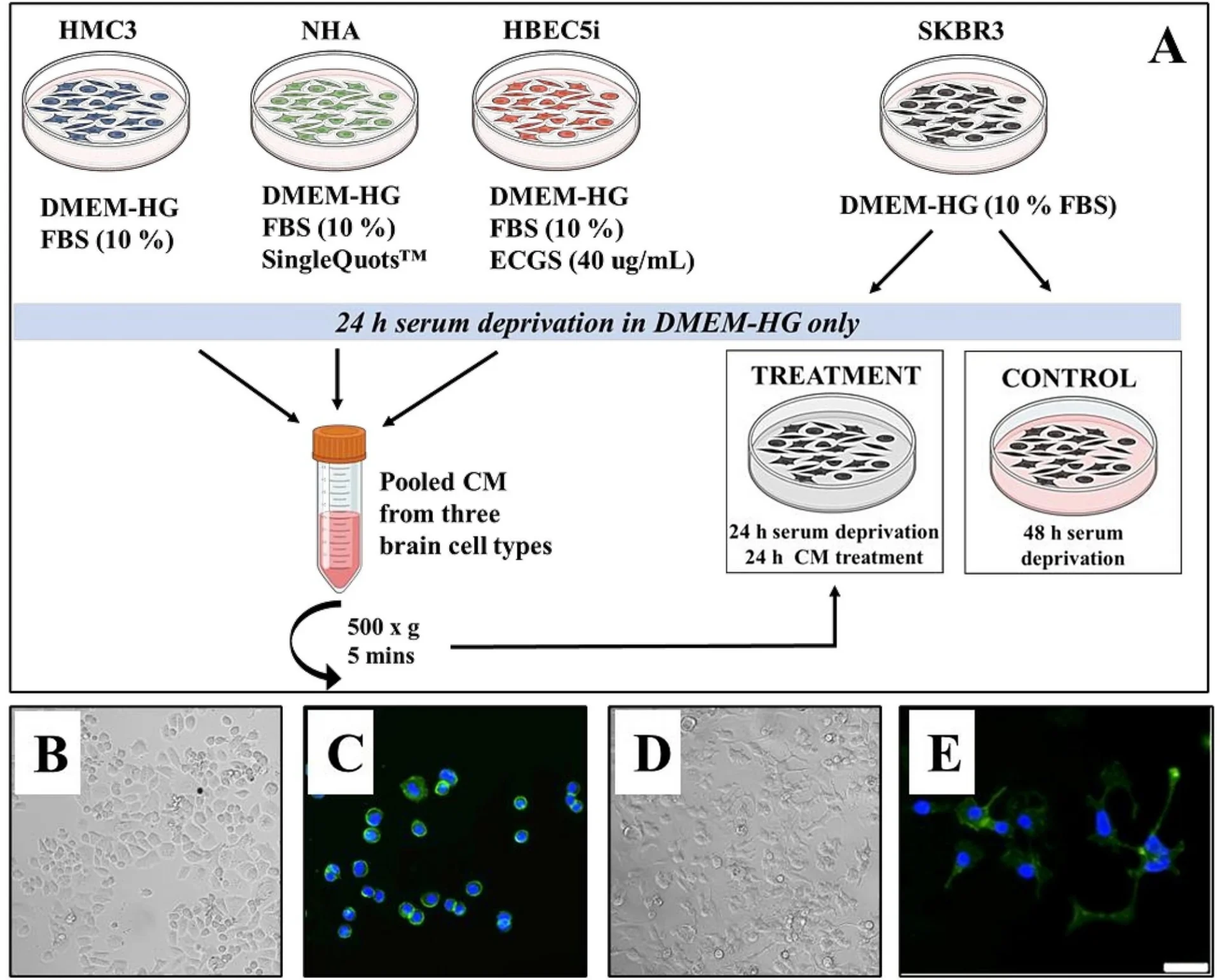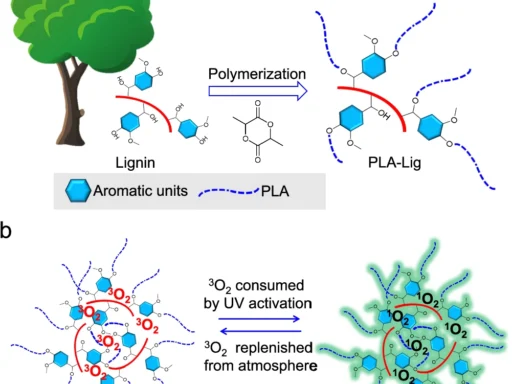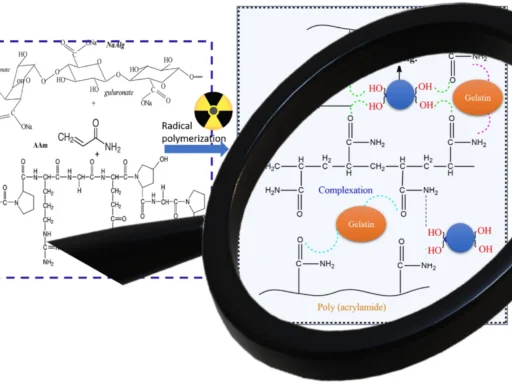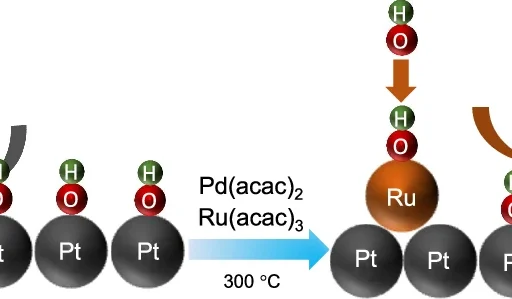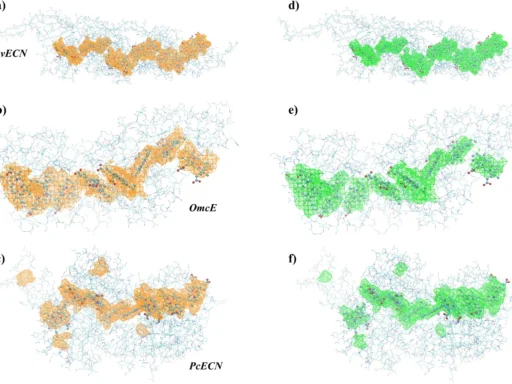Table of Contents
Overview:
Breast cancer is a multifaceted and frequently aggressive illness, presenting substantial difficulties for both patients and healthcare practitioners. One of the most challenging obstacles is the tendency of breast cancer to spread to other parts of the body, especially the brain, which further restricts the available treatment options. Proteomics has provided fresh insights into the complex interactions between breast cancer cells and the brain microenvironment in recent years. An intriguing field of research focuses on the impact of brain-cell-secreted factors on breast cancer progression. By looking at proteomic results, we can find out how these interactions work at their most basic level, which could lead to new and innovative ways of treating people.
Comprehending Breast Cancer:
Breast cancer does not affect all individuals in the same way. It appears in multiple forms, exhibiting different levels of aggressiveness and susceptibility to treatment. Hormone receptor-positive, HER2-positive, and triple-negative breast tumors are the main types. Each has its molecular features.
Brain metastases frequently occur when breast cancer metastasizes to the brain. Managing this process is especially difficult since the blood-brain barrier, which protects the brain, restricts the efficiency of most standard treatments. Gaining insight into the mechanisms by which breast cancer cells acclimate and flourish in the distinct conditions of the brain is critical for the development of more effective treatment approaches.
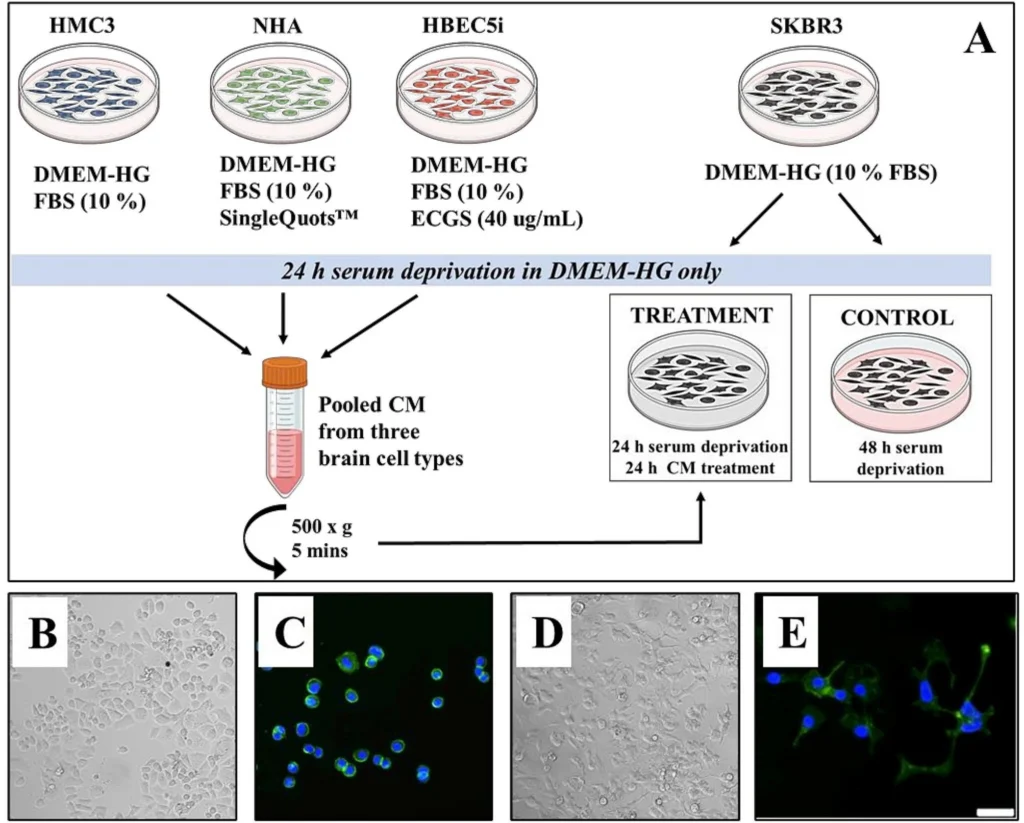
The tumor microenvironment’s function:
The tumor microenvironment (TME) comprises an intricate system of cells, signaling chemicals, and extracellular matrix components that encircle and engage with the tumor. The microenvironment is critical in cancer advancement, impacting various aspects such as tumor development and the spread of cancer cells. When breast cancer cells infiltrate the brain, they come across a distinct and highly specialized milieu consisting of neurons, astrocytes, microglia, and other cells native to the brain.
Factors released by brain cells, such as cytokines, chemokines, and growth factors, play a crucial role in forming this microenvironment. These variables can have both beneficial and detrimental effects on the survival and spread of metastatic breast cancer cells, making them a paradoxical component of cancer progression.
Proteomics: An Overview
Proteomics is the comprehensive investigation of proteins, which are the functional entities within cells responsible for the majority of biological processes. Unlike the genome, which remains relatively stable, the proteome is highly adaptable and undergoes continuous modifications in response to both internal and external stimuli. Proteomics is a valuable tool in cancer research for detecting alterations in protein expression, modifications, and interactions that contribute to the disease’s progression.
Proteomics in breast cancer can provide insights into cancer cells’ responses to the brain microenvironment and their ability to adapt to its distinct difficulties. Scientists can gain knowledge about the molecular processes that facilitate the spread of cancer to the brain by examining proteins that either increase or decrease in response to substances secreted by brain cells.
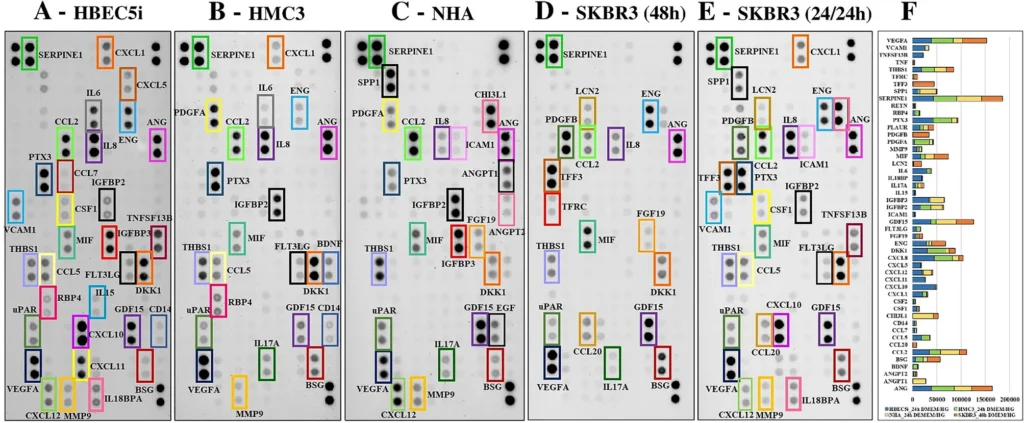
Brain cell-secreted factors: A dual-purpose weapon
Neurons release a variety of substances that can have a significant impact on breast cancer cells’ actions. The following items are included:
Cytokines are small proteins that play a critical role in cell communication and immunological responses.
Chemokines are a specialized type of cytokines that can direct the movement of cells, especially those involved in the immune system.
Development factors are proteins that promote cell development, multiplication, and specialization.
While certain factors may facilitate the survival and multiplication of metastatic breast cancer cells, others may impede these processes, resulting in an intricate interplay that ultimately determines the overall outcome. Research has demonstrated that astrocyte-secreted cytokines protect breast cancer cells from apoptosis, and microglia may produce molecules that increase the invasiveness of cancer cells.
Breast cancer research uses proteomic profiling as a technique:
Proteomic profiling is thoroughly examining proteins in a cell or tissue sample. Breast cancer research employs this technique to detect and measure proteins that change in response to substances released by brain cells. Advanced techniques like mass spectrometry, protein microarrays, and bioinformatics tools enable researchers to accurately depict the proteomic characteristics of cancer cells exposed to the brain microenvironment.
A significant discovery in proteomic research is the detection of distinct proteins that exhibit varying levels of expression when breast cancer cells interact with substances generated by the brain. These proteins could function as indicators for brain metastases or as possible targets for therapy.
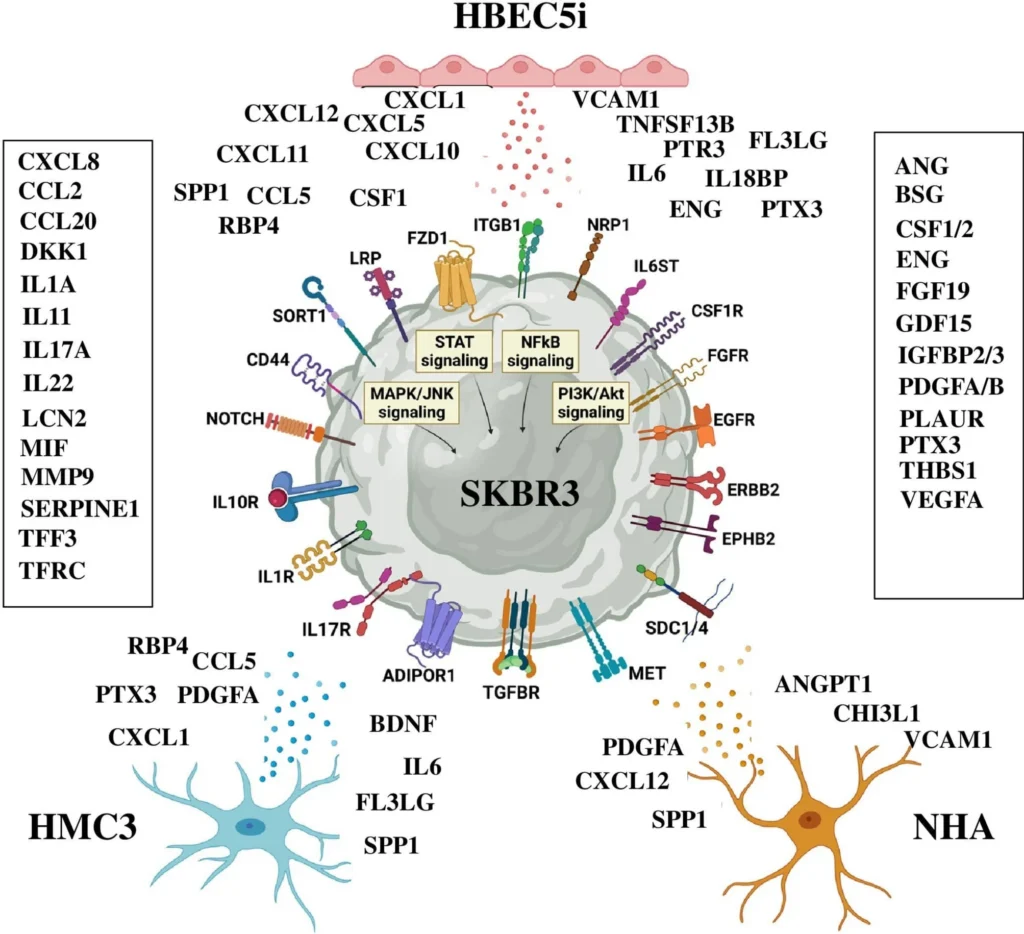
Summary: Proteomic Analysis Reveals New Discoveries in Breast Cancer
Proteomic investigations have provided valuable information about how breast cancer cells adjust to the brain microenvironment.
Changes in Protein Expression: Brain cells release substances that alter protein expression in breast cancer cells, increasing the production of proteins involved in cell adhesion, migration, and survival. These findings indicate that these proteins are involved in facilitating the survival and proliferation of cancer cells in the brain.
Discovery of New Biomarkers: Proteomic studies have revealed new biomarkers that can predict the probability of breast cancer spreading to the brain. We have identified proteins that significantly contribute to the epithelial-to-mesenchymal transition (EMT) process.
Treatment Implications: Novel therapeutics designed to prevent or treat brain metastases could potentially target the proteins identified through proteome profiling. Targeting elevated growth factor receptors in metastatic breast cancer cells could potentially restrict their proliferation in the brain.
Explanation of Protein Alterations:
Complicated signaling pathways frequently influence the alterations in protein expression found in breast cancer cells. Factors produced by brain cells can activate specific receptors on cancer cells’ surfaces. This activation triggers a series of intracellular signaling cascades that lead to changes in gene and protein expression. Researchers have found that brain-derived growth factors activate the PI3K/Akt/mTOR pathway, leading to enhanced survival and treatment resistance in breast cancer cells.
Furthermore, the blood-brain barrier plays an important role in regulating breast cancer cells’ reactions to substances released by brain cells. The blood-brain barrier regulates the movement of specific chemicals, creating a distinct microenvironment that affects the production of proteins and the behavior of cancer cells.
Epigenetic alterations, including DNA methylation and histone modification, also have a role in the proteome alterations identified in breast cancer cells. These changes can be triggered by brain-cell-secreted substances, resulting in the activation or repression of certain genes involved in cancer growth.
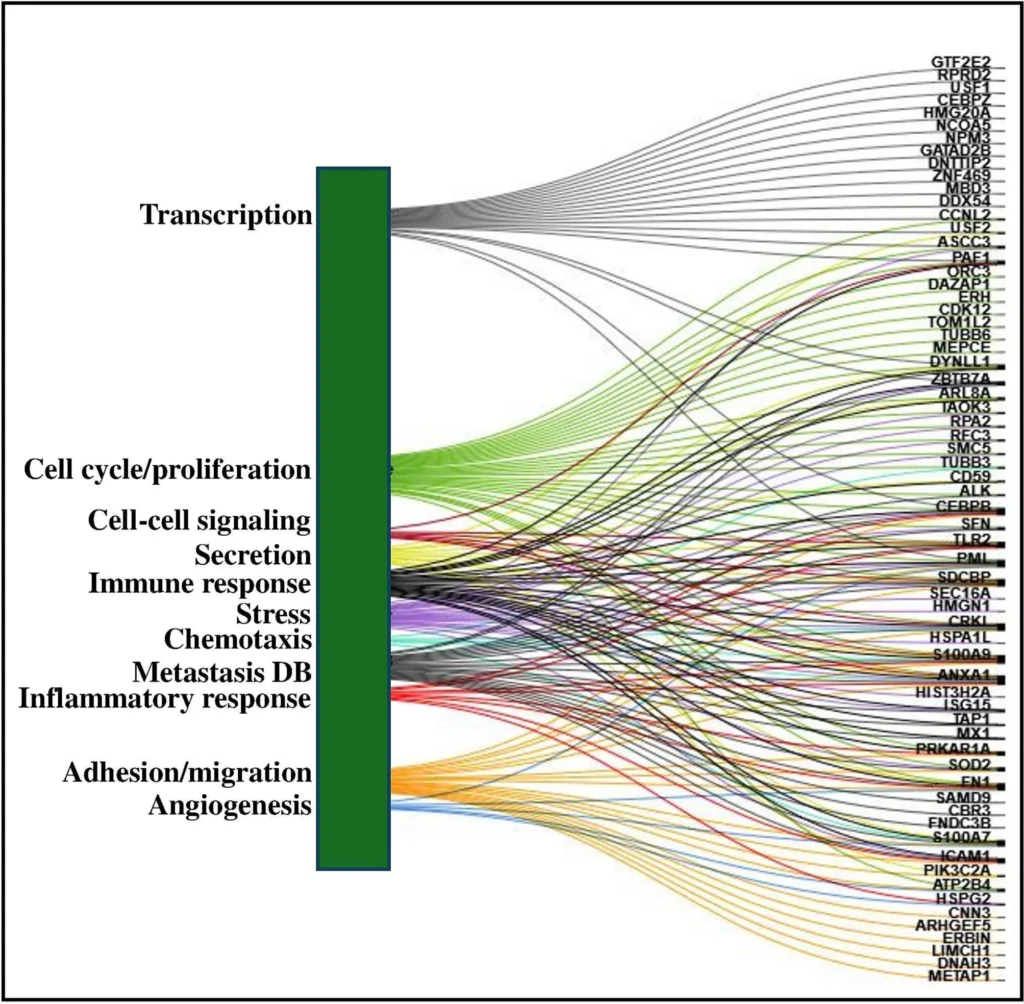
Considerations for Approaches to Treatment:
Looking at the proteomic aspects of how breast cancer reacts to proteins released by brain cells is very important for coming up with new ways to treat the disease. Researchers can design more efficient medicines that specifically target the proteins and pathways discovered in these studies to address brain metastasis problems.
Customized medicine, which involves customizing treatments based on a patient’s cancer’s unique proteome profile, is an effective strategy. One way to do this is to use medicines that block certain signaling pathways or those that change the immune system so that the effects of substances released by brain cells are lessened.
Nevertheless, the process of applying these proteomic discoveries to real-world medical applications is not without difficulties. Additional research and clinical trials are necessary to ascertain the optimal treatment techniques due to the intricate nature of the brain microenvironment and the heterogeneity of patient responses.
The Prospects of Proteomic Research in Breast Cancer:
The outlook for proteomic research in breast cancer appears optimistic since advancements in technology facilitate increasingly intricate and thorough investigations. As proteome techniques advance, researchers can combine proteomic data with other omics approaches, such as genomics and metabolomics, to achieve a comprehensive comprehension of cancer biology.
Discovering novel therapeutic targets and biomarkers has the potential to advance the development of innovative medicines for better brain metastasis management and improved patient outcomes.
In conclusion:
The relationship between breast cancer and the brain microenvironment is an intricate and complicated process, influenced by a delicate equilibrium of variables that can either facilitate or impede cancer advancement. Proteomic research helps us understand these interactions better by finding new biomarkers and therapeutic targets that could greatly improve the way brain metastases are treated. As we further investigate the proteome characteristics of breast cancer, the expectation is that these findings will result in enhanced and tailored therapies, ultimately enhancing the outlook for people confronting this formidable illness.
Frequently Asked Questions:
1). What is proteomics, and why is it important in cancer research?
Proteomics is the study of the complete set of proteins in a cell, tissue, or organism, including their structures, functions, and interactions. It is significant in cancer research because proteins play a crucial role in cancer development, progression, and treatment. By understanding the proteome profile of cancer cells, researchers can identify potential biomarkers for early detection, develop targeted therapies, and gain insights into the underlying mechanisms of disease.
Proteomics is the scientific investigation of the complete repertoire of proteins synthesized by an organism, cell, or tissue. It aids in the detection of alterations in protein expression that contribute to cancer advancement, resulting in the discovery of novel diagnostic indicators and targets for treatment in the field of cancer research.
2). What is the impact of brain-cell-secreted factors on breast cancer progression?
Factors released by brain cells, such as cytokines and growth factors, interact with breast cancer cells, affecting their ability to survive, multiply, and spread to the brain.
3). What difficulties arise when attempting to target brain metastases in breast cancer?
The blood-brain barrier limits drug transport to the brain, and the unique conditions within the brain pose challenges for traditional treatments to effectively combat metastatic breast cancer cells.
4). What role do proteomic findings play in developing customized cancer treatments?
We can use proteomic insights to identify the specific proteins and pathways linked to an individual’s cancer. We can then use this information to customize targeted therapies to the patient’s specific cancer profile.
5). What are the potential avenues for proteomic investigation in breast cancer?
We expect future research to focus on the integration of proteomics with other omics methods, the identification of novel therapeutic targets, and the advancement of tailored and more efficient treatments for breast cancer, specifically concerning brain metastases.
For more chemistry blogs, visit chemistry Master

